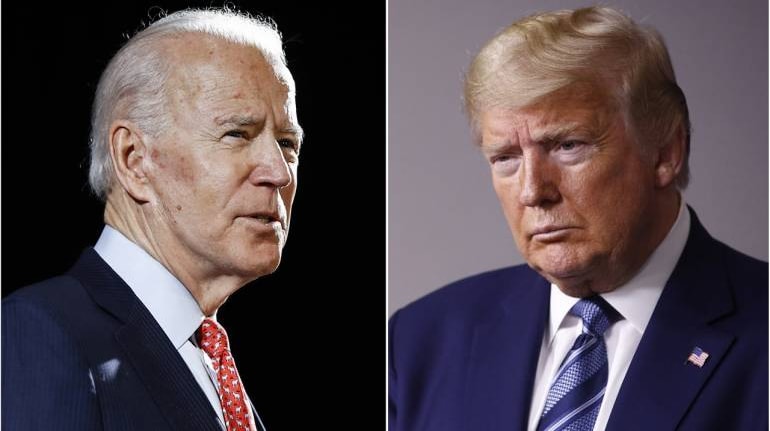



Back in the late 1950s, reminisces former Foreign Secretary Maharaj Krishna Rasgotra, President John F Kennedy, an admirer of Indian democracy, offered to help India detonate a nuclear device much before China did in 1964.
Indian Prime Minister, Jawaharlal Nehru, forever the pacifist, and on course to taking the non-aligned route to global politics, declined. In his book, `A Life in Diplomacy’, Rasgotra contends that India’s modern history would have been different, had Nehru decided to accept the American offer.
Six decades down the line, it would seem like another lifetime. Thanks to the China’s belligerence and a seventy-year-old battle of attrition with Pakistan – with both countries staunch allies to boot - India is firmly in the US camp. Nothing illustrated this strengthening bilateral relationship in a multilateral world better than India formalising the Quad or the Quadrilateral Security Dialogue last month, with New Delhi as the pincer of an Indo-Pacific alliance at sea that has US, Australia and Japan as the other principal coordinates.
With the election of Democrat Joe Biden as the US’s 46th President on Saturday night, there are natural concerns in New Delhi about the new administration in Washington.
A cursory glance at Indo-US ties in the past decades would reveal that New Delhi has found more comfort with Right Wing Republicans than with the Left leaning Democrats, who are prone to asking questions on, among other things, human rights and subjects that India considers its internal matters not open to third party or foreign scrutiny. But 2020 is not the 1950s. A lot of water has flown down the Hudson and the Ganges respectively, both now threatened to be swamped by the Yangtze.
Indo-US ties have reached a stage which is irreversible, given the geo-political context. Non-alignment is but a theoretical exposition, so far back in the past that the current generation of Indians have probably not even heard about it. The bilateral relations between the two sides, powered by information technology in the last couple of decades, the ever-burgeoning people-to-people contacts and shared democratic values, has reached a highwater mark.
Some of India’s top-notch former diplomats, who have led New Delhi’s intense negotiations around the globe, most notably with the US, China and Pakistan, are convinced that the wheel has come a full circle. It can only continue on a firm footing.
Kanwal Sibal, former Foreign Secretary
"There is not going to be any major change in Indo-US ties, only on specific points and differences of nuances, which can be expected. On every front, political, economic and military, the relationship between the two countries will deepen. The new administration could make noises on Kashmir or the CAA, as Democrats are wont to do, but they are not priority issues as far as US foreign policy goes. That is nothing that India has not dealt before. During Bill Clinton’s time, we were on stickier ground while George Bush never accepted Pakistan as a terror hub. US, after the race riots, Black Lives Matter and the way they have conducted their election, is hardly in a position to put the human rights focus on India. Indians will breathe easier with less tight H1 visa regulations.”
G Parthasarathy, distinguished diplomat, former High Commissioner to Pakistan
"The election of President Joe Biden does not change things materially, but it is a fact that the Democrats are a political party and there are sections within the party who could have reservations on Kashmir and the developments there post August 5, 2019. Not that they have said anything so far but that could be a bone of contention. Democrats have a view on Kashmir. I don’t think there will be any change on the US position on China. The Biden administration will be consistent when it comes to China. There can be no difference of opinion on US’s China policy vis-a-vis India.”
Jayant Prasad, former Permanent Representative to the Conference on Disarmament, Geneva and ex-Indian envoy to Afghanistan and Nepal:
"There is broad bipartisan consensus in the US for the need to stand up to China, which will remain, irrespective of the fact that there is a new US administration in charge."
Rakesh Sood: Former diplomat, who has led India’s multilateral disarmament negotiations, bilateral dialogues with Pakistan and strategic dialogues with the US, UK, France and Israel.
"I don’t think there will be any qualitative change in Indo-US relations. This is not a zero-sum game. About the Democratic Party stand on Kashmir, there is a comfort level in some cases and not so in other cases. Afterall, President Donald Trump did not change his stand on India despite criticising the import duty on Harley-Davidson motorbikes (in 2018). The optics around the 2+2 Dialogue in Delhi are defining — the defence ties between the two countries have come of age and that is not going to change with the new Biden administration."
(Ranjit Bhushan is a senior journalist based in Delhi)
Discover the latest Business News, Sensex, and Nifty updates. Obtain Personal Finance insights, tax queries, and expert opinions on Moneycontrol or download the Moneycontrol App to stay updated!